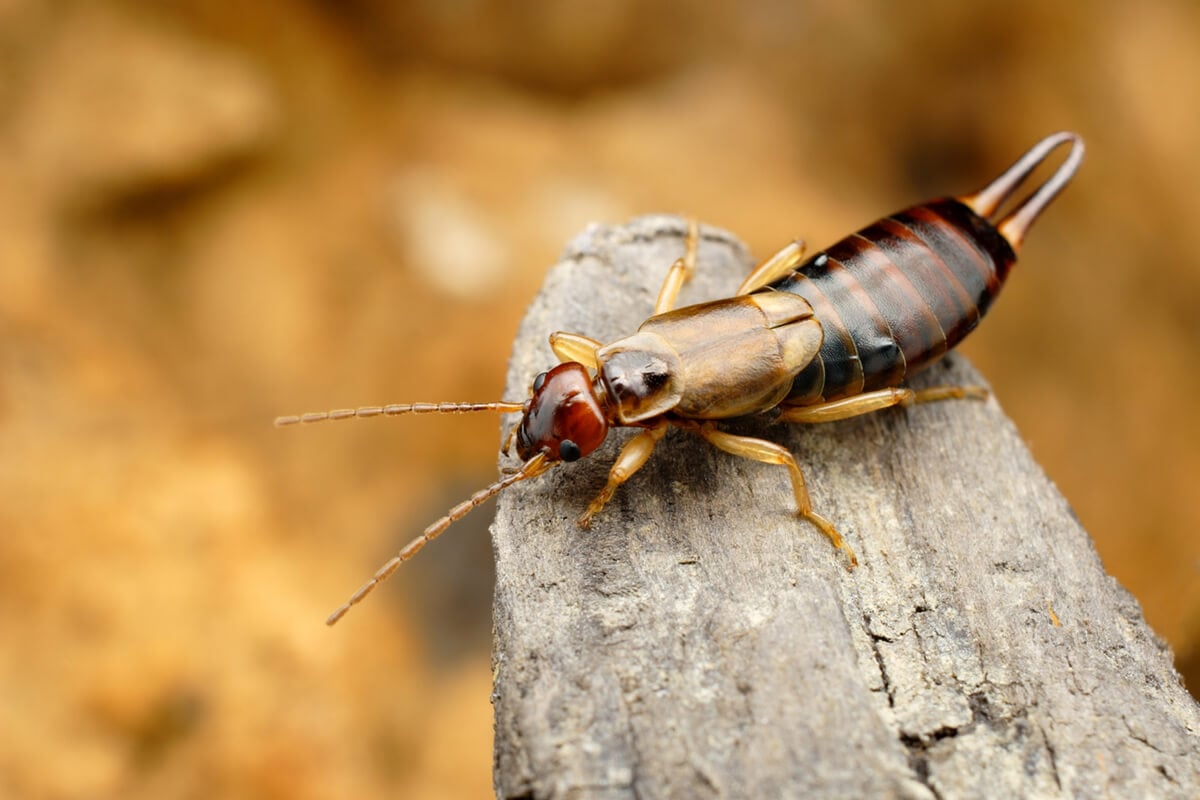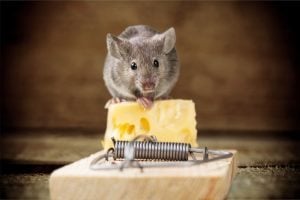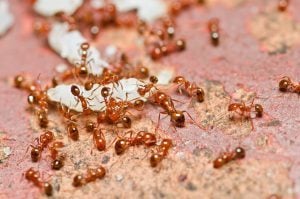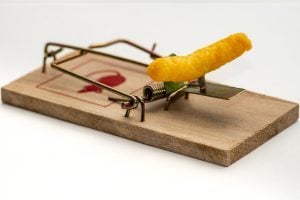In this blog post, we’ll go over the top ways to get rid of earwigs in your house and how to keep them out of your home for good!
Change the Environment
Earwigs love damp, dark places. They are nocturnal, which is why when you lift a bucket or flower pot in your yard they run all over the place. They hide during the day and come out at night to feed. Earwigs also feed on decaying plant matter, though they will go after seedlings in your garden.
The number one way to get rid of earwigs in your house is to change the environment. If you have earwigs in your house, you have a bigger problem. Damp and dark environments are an amazing way to grow mold and mildew. Focus on keeping inside the house dry and earwigs will go away naturally. They need the damp and without the damp, they die off or leave.
Diatomaceous Earth
Diatomaceous earth is full of silica which is a micro-sized, sharp, and naturally occurring substance. When kept dry, it causes insects to dehydrate and die. The process works because of the way that insects, such as earwigs are built. Earwigs are soft-bodied even though they have an exoskeleton. The silica shards pierce the sutures that hold the exoskeleton plates together and cause the earwig to lose body fluid.
Insects have hollow abdomens, and unlike humans, they do not have a blood vessel system. All of their bodily fluids are mixed in an open cavity and absorbed as needed by internal organs. Once the diatomaceous earth begins to cause the body to lose fluid, the insect weakens and then dies. This is one way to get rid of earwigs in your house, yard, or outbuilding.
The advantage of using diatomaceous earth is that it does not pose a threat to larger organisms, pets, children, or adults. It is not toxic like pesticides so, it is much safer too for use on earwigs in your house, yard, or outbuilding.
Pesticides and Baits
As a means to keep earwigs out of your house, you can use pesticides and baits around the perimeter of your home and outbuildings. Because earwigs often live under mulch, weeds, or objects, such as flowerpots, you will need to spray a liquid pesticide to soak into those areas.
If you use bait, pull back the mulch and place the bait on the soil surface, replacing the mulch. The earwigs will consume the bait and then die. You can place a few granules of bait under objects too.
Pesticide usage is non-specific. They will kill off beneficial organisms, such as earthworms as well as earwigs and other pests. They can also accidentally do damage to pets or cause health issues to children.
Prevention is the Best Cure for Earwigs
Prevention will not help get earwigs out of your house once they are inside, but it will help to reduce the number that can get inside. Earwigs are small and can wiggle through small gaps. They will come inside under doors, ill-fitting windows, and holes in the window screens. They will also crawl through cracks in basement walls.
Make sure to use a tight-fitting form of weatherstripping under doors. If windows do not fit properly or are hard to open and close, either repair them or make sure that there is no gap between the window frame and the sill. If there are holes in window screens, repair the screen or replace it.
It is also a good idea to walk the perimeter of your home and inspect the exposed sections of the foundation. Look for cracks in which insects can hide and then gain entrance to your home. If you have a basement, use a bright flashlight and inspect the walls. If there is any place where water may seep into the basement, have that area repaired and sealed. Earwigs love moist areas by repairing leaks into basements, you remove a key component to their environment.
Besides the fact they are in your house, earwigs are somewhat beneficial. They consume decaying vegetation, which would be smelly otherwise. If you opt to use pesticides in your house, choose a product that is rated for in-house use and read the instructions carefully. Oil-based pesticides are easy to spread around with a mop or broom and can end up in areas where you don’t want them to be. Kids and pets often play on floors so use pesticides carefully. It may be a better option to use a natural product such as diatomaceous earth.





